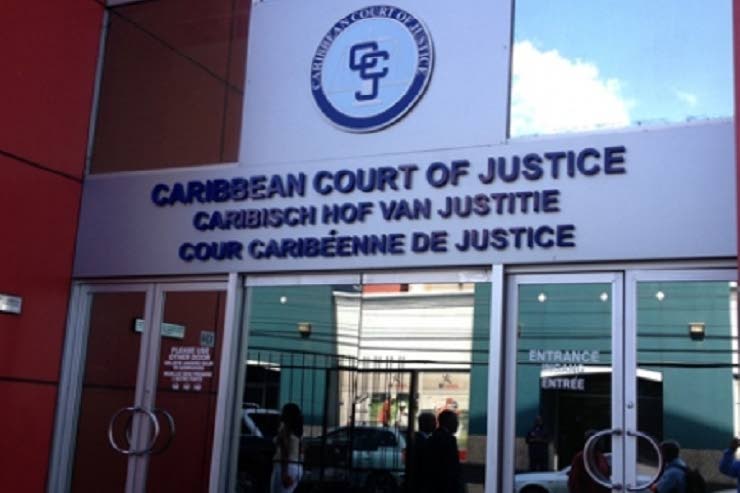Guyana awaits CCJ’s decision on no-confidence vote

GUYANA will have to wait a little longer before it is known if they are to return to the polls, as the Caribbean Court of Justice (CCJ) has reserved its decision on a consolidated challenge of that country’s appellate court ruling which invalidated December’s no-confidence vote against the ruling coalition government.
After a two-day marathon session at the court on Henry Street, Port of Spain, President of the CCJ Justice Adrian Saunders announced the court will give its decision on a date which will be made known to the parties.
Also presiding over the appeals are Justices Jacob Wit, Winston Anderson, Maureen Rajnauth-Lee, and David Hayton.
The Opposition People’s Progressive Party (PPP), its leader Bharrat Jagdeo, former APNU-AFC coalition member Charrandass Persaud and political commentator Christopher Ram, are seeking to have the CCJ – Guyana’s final appellate court – throw out the March ruling of Guyana’s Court of Appeal and restore the validity of the no-confidence motion that toppled President David Granger’s ruling coalition government.
The appeal court, in a majority ruling, held that there was a need for an absolute majority of 34 votes for the no-confidence motion to be passed, and not the 33 votes it received in December.
By a majority of two to one, the appellate court judges ruled that the no-confidence motion was not passed.
In their application, the appellants contend by section 106(6) of the Constitution of Guyana, the Cabinet, including the president, is required to resign if the Government is defeated on the vote of a majority of all elected members of the assembly on a vote of no- confidence.
They say the assembly is comprised of 65 elected members and on December 21, last year, when 33 members voted in favour of the motion and 32 against, the speaker declared the motion passed.
They also contend that the Government was required to hold an election in three months, on or before March 22.
Persaud, meanwhile, also challenged the contention that he was ineligible to vote because he held dual citizenship.
Attorneys for Guyana’s Attorney General Basil Williams have argued that Persaud’s vote was invalidated because the Constitution prohibited members of the National Assembly from voting against their party.
Senior Counsel Eamon Courtenay, who represented Williams, submitted that the “crossing of the floor” provision of the Constitution (Article 156(3)) provided that any parliamentarian not happy with his/her party, must inform the Speaker of the Assembly that he/she was no longer supporting the list from which his/her name was extracted.
According to him, the Constitution prohibited members from voting against the list and emphasised that a vote of no-confidence did not automatically trigger a dissolution of the Parliament, but Guyana’s laws did not permit such a vote, only a vote of confidence advanced by the Government.
It has also been argued that Persaud’s vote was disqualified since he was ineligible to vote because he held dual citizenship.
However, attorneys for the appellants, which include Douglas Mendes, SC, Sanjeev Datadin, Kamal Ramkarran, and Devindra Kissoon, urged the court to uphold their appeals as it has not been proved that the former AFC member knew he was disqualified from the parliament because of his dual-citizenship and they emphasised that he was not a “usurper” of the Constitution on the day he voted.
On the question of the numbers required for a majority vote, they have submitted that the only logical position was that 33 was the majority of 65.
Ramkarran, in his closing submissions, urged the court not to “continue countenance of the continued violation of the Constitution” by ordering immediate elections.
“Your honours must be cognisant of the fact the three months allowed by the Constitution (for the calling of elections) is at an end. It came to an end at the end of March (March 22)…45 days ago. We have been in violation of the Constitution for 45 days,” he said.
The appellants have submitted that if they are successful in their arguments, there is a clear list of voters that could be used if elections is called.
The CCJ judges are also expected to rule on a separate challenge against the decision by Granger to appoint Justice James Patterson as chairman to the Guyana Elections Commission (GECOM) on the basis that he was not qualified for appointment.
At the end of the hearing, Senior Counsel Stanley Marcus, who represents GECOM, was told that the court will consider its decision and when it does deliver its ruling, it may need to hear further submissions from the commission.


Comments
"Guyana awaits CCJ’s decision on no-confidence vote"